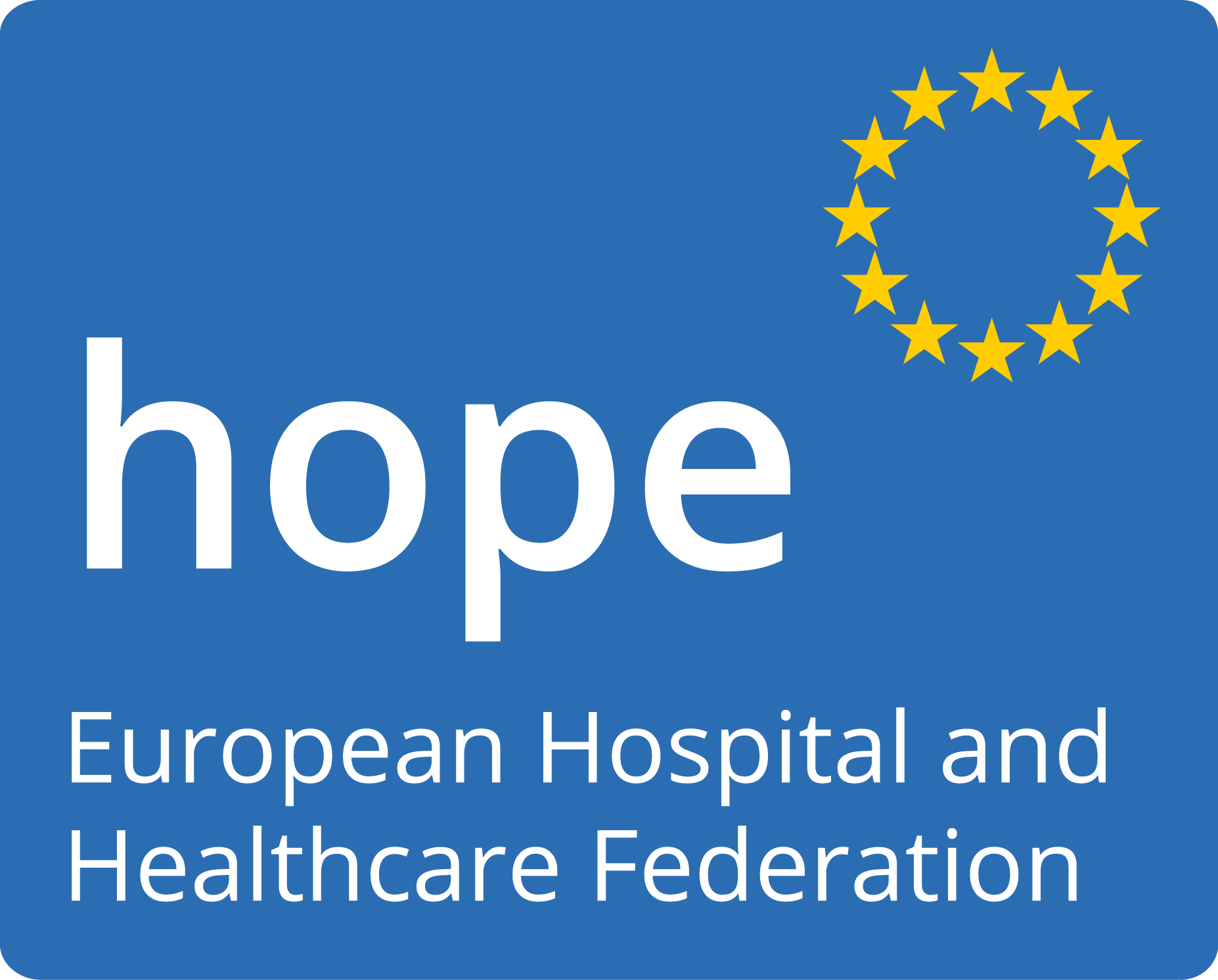The phenomenon of antimicrobial resistance (AMR) is increasingly threatening patient safety. AMR is the ability of microorganisms to resist antimicrobial treatments, especially antibiotics. It poses a major threat to public health globally and represents a huge burden for hospitals and healthcare systems, resulting from prolonged hospital stays and a significant number of deaths.
The European Commission has coordinated actions on this topic via two Action Plans. HOPE took part in the evaluation of the first Action Plan (2011-2016) and in a consultation response called for increased Member State support prior to the launch of the EU One Health Action Plan against AMR, adopted in 2017. HOPE also contributed to policy debates on the preparation of EU guidelines on prudent use of antimicrobials in human medicine.
HOPE collaborates with the European Centre for Disease Prevention and Control (ECDC) to support the annual European Antibiotic Awareness Day (EAAD) campaign by reviewing and disseminating materials, as well as providing statements. EAAD raises awareness about prudent antibiotic use. In 2017, HOPE co-defined key messages of a communication toolkit addressing professionals in hospitals and other healthcare settings.
HOPE is also a supporting stakeholder in the Joint Action on Antimicrobial Resistance and Healthcare-Associated Infections (EU-JAMRAI, 2017-2021) and its successor, EU-JAMRAI2 (2024-2027, same website). This is a collaborative project built on existing initiatives by Member States, backed by various stakeholders including Commission DGs and agencies active in One Health areas, the quadripartite (WHO, OIE, FAO, UNEP), and other international organisations (e.g., OECD). Among the outcomes, EU-JAMRAI has released policy briefs containing concrete actions and recommendations to fight AMR in humans and animals, the current focus being on strengthening the environmental angle of One Health.
Following endorsement of a Joint Statement and Call to Action on AMR on the EU Health Policy Platform, HOPE joined the EPHA-led AMR Stakeholder Network in 2019 and signed its Roadmap for Action. HOPE also took part in the kick-off meeting of the European Parliament’s MEP Interest Group on AMR, which, inter alia, sent a letter to the former EU Vice-President and Health Commissioner calling for the EU Pharmaceutical Strategy to integrate further AMR provisions and released a report on good practices to tackle AMR.
In November 2020, HOPE released an AMR Position Paper structured around three axes: (1) foster the One Health approach and involve civil society stakeholders, (2) put prevention at the core of AMR policies, (3) promote the development of new antimicrobials.
The implementation of the One Health AMR Action Plan was among the health priorities of the 2019 – 2024 Commission and remains high on the political agenda during the 2025-2029 mandate. The mission letter for Oliver Várhelyi, EU Commissioner for Health and Animal Welfare, stipulated he will continue treating AMR as a major health threat, working with Member states to reach the 2030 targets.
In 2021, the European Parliament voted on a resolution tabled by MEP Häusling (Greens/EFA, Germany) objecting to a Commission delegated act on drug resistance. The act established criteria for the designation of antimicrobials to be reserved for the treatment of certain infections in humans and banned their use in animals to try to preserve their efficacy. Häusling argued the criteria were not stringent enough and called for a revision of the proposal. HOPE reached out to MEPs asking them to support the resolution, but partially due to intensive lobbying by farming stakeholders, it was rejected.
In November 2021, the AMR Stakeholder Network launched a position paper containing recommendations for measures to combat AMR in the EU Pharmaceutical Strategy. These included empowering health professionals; exploring new business models for antimicrobials; reducing dependence on antibiotics through consumption targets, prevention activities, and researching non-antibiotic options; clarifying the role of the Health Emergency Response Authority (DG HERA); supporting environmentally sustainable antibiotics; and strengthening prevention and health promotion.
In February 2022, the Commission opened a call for evidence for a Council Recommendation. HOPE’s feedback stressed the need for the Recommendation to complement the One Health Acton Plan, support hospitals operationally and financially to develop good practices, and set binding measures related to pharmaceuticals. The proposal for a Council Recommendation on stepping up EU actions to combat AMR was released in April 2023 as part of a package reforming the EU pharmaceutical legislation and adopted in June. It suggested concrete and measurable targets to reduce antibiotic use and promote high levels of infection prevention and control, especially in hospitals, improving awareness, education and training of relevant professionals and fostering multisectoral cooperation. The targets were designed with ECDC considering different national situations. It also called for better surveillance and monitoring, boosting the development of national action plans, fostering research and innovation, and contributing to the design of an EU financial incentive to improve access to antimicrobials and incentivise the development of other medical countermeasures like vaccines and rapid diagnostics.
In May 2022, HOPE signed another Joint Statement by health and animal welfare organisations calling on the Commission to modify its draft list of antimicrobials reserved for human health and include some vital antimicrobials that were left aside.
In 2023, HOPE was selected to join the Commission’s AMR One Health Network expert group, which holds two annual meetings. The expanded network supports identifying policy needs and development; coordination between Commission services, Member States and stakeholders implementing EU legislation, programmes and policies; exchanging experience and identifying best practices; promoting the One Health concept; and working towards building consensus and accelerating national efforts to tackle AMR.
The final report of HaDEA’s 2023 study, Bringing AMR medical countermeasures to market includes the results of a survey on needs and priorities, challenges and potential roles of DG HERA. The respondents expected DG HERA to support implementation of a new pull mechanism (achievable through incentives including revenue guarantees), to foster innovation from the early developmental stages, and increase the pipeline of new vaccines, diagnostics, and treatments. Sharing best practices and capacity building for Member States was also requested.
With continuity ensured by the French Ministry of Health and Inserm, EU-JAMRAI2 focuses on concrete actions to implement the Council Recommendation in Member States. Its 50 million EUR budget is the biggest ever EU investment in AMR. HOPE attends the annual meetings and monthly webinars, contributing the hospital/healthcare perspective.
As an important EU-level reference document, the Commission’s Scientific Advisory Group published its opinion on One Health governance in the EU in November 2024.
AMR is one of the areas covered by the new EU reference laboratories (EURLs) for public health operational since January 2025. The EURL for AMR in bacteria is run by a Danish-led consortium.
At the international level, the second high-level AMR meeting took place at the United Nations General Assembly in September 2024. The Political Declaration adopted by heads of state calls for a 10% reduction of annual human deaths associated with AMR by 2030; sustainable national financing and catalytic funding to ensure at least 60% of countries have national action plans by 2030; ensuring that at least 70% of antibiotics used in humans belong to the WHO Access group of antibiotics (with minimal side effects and lower potential to cause AMR); ensuring 100% of countries have basic water, sanitation, hygiene and waste management services in healthcare facilities, and 90% meet WHO minimum requirements for IPC programmes by 2030; and reducing antimicrobial use in agri-food systems by prioritizing measures to prevent and control infections and fostering responsible, evidence-based use in animal health. The declaration also calls for increased research into the environmental dimensions of AMR and actions to address antimicrobial pollution.

